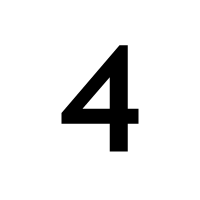- Afghanistan
- Åland Islands
- Albania
- Algeria
- American Samoa
- Andorra
- Angola
- Anguilla
- Antarctica
- Antigua and Barbuda
- Argentina
- Armenia
- Aruba
- Australia
- Austria
- Azerbaijan
- Bahamas
- Bahrain
- Bangladesh
- Barbados
- Belarus
- Belgium
- Belize
- Benin
- Bermuda
- Bhutan
- Bolivia
- Bonaire, Sint Eustatius, and Saba
- Bosnia and Herzegovina
- Botswana
- Bouvet Island
- Brazil
- British Indian Ocean Territory
- British Virgin Islands
- Brunei
- Bulgaria
- Burkina Faso
- Burundi
- Cambodia
- Cameroon
- Canada
- Cape Verde
- Cayman Islands
- Central African Republic
- Chad
- Chile
- China
- Christmas Island
- Cocos [Keeling] Islands
- Colombia
- Comoros
- Cook Islands
- Costa Rica
- Croatia
- Cuba
- Curaçao
- Cyprus
- Czech Republic
- Congo - Kinshasa
- Denmark
- Djibouti
- Dominica
- Dominican Republic
- Timor-Leste
- Ecuador
- Egypt
- El Salvador
- Equatorial Guinea
- Eritrea
- Estonia
- Ethiopia
- Falkland Islands
- Faroe Islands
- Fiji
- Finland
- France
- French Guiana
- French Polynesia
- French Southern Territories
- Gabon
- Gambia
- Georgia
- Germany
- Ghana
- Gibraltar
- Greece
- Greenland
- Grenada
- Guadeloupe
- Guam
- Guatemala
- Guernsey
- Guinea
- Guinea-Bissau
- Guyana
- Haiti
- Heard Island and McDonald Islands
- Honduras
- Hong Kong SAR China
- Hungary
- Iceland
- India
- Indonesia
- Iran
- Iraq
- Ireland
- Isle of Man
- Israel
- Italy
- Côte d’Ivoire
- Jamaica
- Japan
- Jersey
- Jordan
- Kazakhstan
- Kenya
- Kiribati
- Kosovo
- Kuwait
- Kyrgyzstan
- Laos
- Latvia
- Lebanon
- Lesotho
- Liberia
- Libya
- Liechtenstein
- Lithuania
- Luxembourg
- Macau SAR China
- Macedonia
- Madagascar
- Malawi
- Malaysia
- Maldives
- Mali
- Malta
- Marshall Islands
- Martinique
- Mauritania
- Mauritius
- Mayotte
- Mexico
- Micronesia
- Moldova
- Monaco
- Mongolia
- Montenegro
- Montserrat
- Morocco
- Mozambique
- Myanmar [Burma]
- Namibia
- Nauru
- Nepal
- Netherlands
- Netherlands Antilles
- New Caledonia
- New Zealand
- Nicaragua
- Niger
- Nigeria
- Niue
- Norfolk Island
- North Korea
- Northern Mariana Islands
- Norway
- Oman
- Pakistan
- Palau
- Palestinian Territories
- Panama
- Papua New Guinea
- Paraguay
- Peru
- Philippines
- Pitcairn Islands
- Poland
- Portugal
- Puerto Rico
- Qatar
- Congo - Brazzaville
- Réunion
- Romania
- Russia
- Rwanda
- Saint Barthélemy
- Saint Helena
- Saint Kitts and Nevis
- Saint Lucia
- Saint Martin
- Saint Pierre and Miquelon
- Saint Vincent and the Grenadines
- Samoa
- San Marino
- São Tomé and Príncipe
- Saudi Arabia
- Senegal
- Serbia
- Serbia and Montenegro
- Seychelles
- Sierra Leone
- Singapore
- Sint Maarten
- Slovakia
- Slovenia
- Solomon Islands
- Somalia
- South Africa
- South Georgia and the South Sandwich Islands
- South Korea
- South Sudan
- Spain
- Sri Lanka
- Sudan
- Suriname
- Svalbard and Jan Mayen
- Swaziland
- Sweden
- Switzerland
- Syria
- Taiwan
- Tajikistan
- Tanzania
- Thailand
- Togo
- Tokelau
- Tonga
- Trinidad and Tobago
- Tunisia
- Turkey
- Turkmenistan
- Turks and Caicos Islands
- Tuvalu
- U.S. Virgin Islands
- Uganda
- Ukraine
- United Arab Emirates
- United Kingdom
- United States
- U.S. Minor Outlying Islands
- Uruguay
- Uzbekistan
- Vanuatu
- Vatican City
- Venezuela
- Vietnam
- Wallis and Futuna
- Western Sahara
- Yemen
- Zambia
- Zimbabwe
Sick pay: What you need to know

Sick pay: What you need to know
Are you too unwell to work? You may be eligible for financial assistance...
Even if you take great care of your health, there will be occasions when a bug or virus strikes, or something happens that prevents you from working. Worrying about how taking time off would affect your finances can be a genuine source of anxiety.
Here's our guide to sick leave and what it means for you if or when you're unable to work to help you understand what financial assistance may be available to you:
What exactly is sick pay?
Sick pay, or statutory sick pay as it is properly known, is the minimal amount your employer is required to pay you if you are absent from work due to illness (as long as you meet the eligibility criteria). The regular weekly amount for ill pay is currently £96.35 per week, which is taxed. Depending on your circumstances, sick pay can be provided for up to 28 weeks.
You may be paid more if your employer has established their own sick pay system. Check with your company or your employment contract to check if this is in place.
Is sick pay available to me?
Sick pay eligibility is dependent on the following factors: *being classified as an employee and having performed some type of work for your company *earning at least £120 per week on average *being ill for at least four days in a row Non-working days are included.
- If you work part-time, you can claim sick pay as long as you earn at least £120 per week.
- If you are currently receiving other benefits, such as Statutory Maternity Pay, you may be ineligible for sick pay.
When does statutory sick leave begin?
Sick pay begins on the fourth day you are absent due to illness. The days you are unable to work are referred to as 'qualifying days.' If you are eligible, you will be paid sick leave for all of your qualifying days, with the exception of the first three days, which are known as 'waiting days.'
How can I file a claim for sick leave?
First, look through your employee handbook to determine what procedure your company has in place for informing them that you're sick. If nothing is in your guidebook, you should:
- Inform your employer right away that you're sick and unable to work.
- Tell your employer the first day you were sick, including non-work days.
- Confirm your illness in writing (self-certification) within seven days of informing your employer that you're sick.
- If you're sick for more than seven days or your employer requests one, you may need to obtain a doctor's note. The seven days include days on which you would not normally work.
Is my company required to pay me sick leave?
If you match the sick pay eligibility conditions, your employer is required by law to pay you sick pay.
However, if you do not notify your employer right immediately that you are sick, it is up to your employer to determine whether you have a valid cause for not alerting them. If they don't think your reason was valid, they have the right to refuse to give you ill pay for the number of days you were late in informing them.
Do I get sick pay if I work for myself?
No, it does not. Sick pay is exclusively accessible to corporate employees. If you are self-employed and have a disability or a health condition that limits your capacity to work, you may be qualified to claim Employment and Support Allowance (ESA).
The amount of ESA you receive is determined on your age, capacity to return to work, and other variables.
ESA eligibility is based on the following factors:
- A disease or sickness that affects your ability to work
- Worked as an employee or self-employed
- Paid enough National Insurance Contribution, usually in the last two or three years
Sick pay and COVID-19
If you're self-isolating, the regulations are different. If you were self-isolating or were instructed to self-isolate up to March 24, 2022, you may be allowed to claim statutory sick pay after one day off sick. From the 24th of March, you may be eligible for statutory sick pay beginning on day four.
What exactly is sick leave?
Sick leave is when you take time off from work due to illness or injury, either physical or mental. You retain your employment rights, such as a duty of care, while on sick leave. Statutory Sick Pay is the legislation that governs sick leave.
Can I file an appeal if I believe I should be receiving sick pay?
- If your employer refuses to pay you sick leave, or you believe you are receiving less sick leave than you should, first check your eligibility on the.gov or ACAS websites.
- If you are qualified but your company continues to deny or just pays a portion of your sick leave, your employer should write to you explaining why. You can request this even if you are no longer employed by them.
- If you are unable to reach an agreement with your employer, you should contact the HMRC Statutory Payment Dispute Team, who may be able to determine your claim.

 by Admin
by Admin


